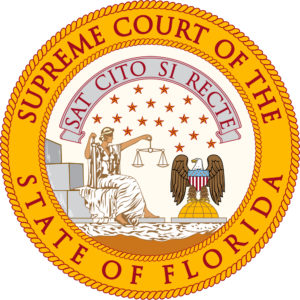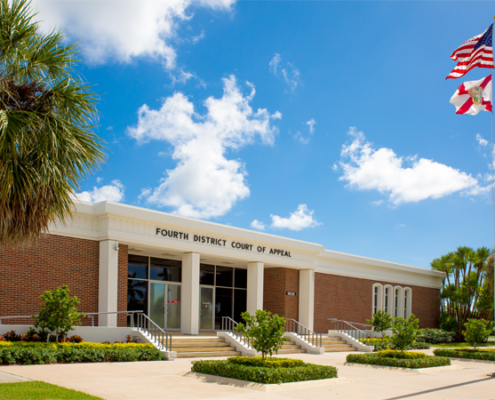 THE NEWS
THE NEWS
Effective Sunday, October 1, 2017, the Florida Supreme Court’s amendments to the appellate rules go into effect. The amendments are largely designed to update the rules to comport with the realities of producing and easily reading electronic appendices and records.
THE TRAP FOR THE UNWARY PRACTITIONER
Rule 9.220 is amended, adding new requirements for an appendix. Now, an appendix must:
- contain a coversheet that meets specific requirements for content;
- contain a certificate of service;
- generally be filed as a separate, single PDF file;
- be properly indexed and consecutively paginated, with the cover sheet being page 1 and the page numbers matching the PDF reader display;
- “be bookmarked, consistently with the index, such that each bookmark states the date, name of the document which it references, and directs to the first page of that document;”
- have bookmarks “viewable in a separate window.”
Further, no condensed transcripts are permitted in an appendix without leave of court. The rule also changes the format for paper appendices, when so authorized.

The Fourth District has warned that it will strike any appendix that does not comply with the amended rules when they go into effect on October 1, 2017.
The Fourth District has already issued an email to all 4th DCA eDCA Filers, stating “Effective October 1, 2017, electronic appendices which do not comply with the amended Rule 9.220 will be stricken.” So be ready and be compliant!
THE SUBSTANTIVE AMENDMENTS SUMMARIZED
9.020 – Adds a definition for “E-Filing System Docket.”
9.120 – Details the format and contents of the documents to be transmitted from the district courts to the supreme court in situations where a party is seeking discretionary review
9.141 – Removes the clerk’s exception that allowed it to avoid having to repaginate or reindex a record from a previously prepared record into a record for a collateral or postconviction criminal case.
9.200 – The record shall now be submitted as a PDF document, uploaded to the e-filing system docket, and available for download to attorneys and parties who have registered for access to the system. The appellate court may direct the lower clerk to submit a replacement record when an original record is found to be noncompliant with the technical requirements of rule 9.200(d).
9.220 – See above.
Rules 9.160 and 9.180 contain only minor changes in terms to reflect that their respective documents are “transmitted” rather than “sent” or “filed.”
BONUS TIP FOR TRIAL LAWYERS
The fact that the new rules forbid condensed transcripts in an Appendix should send a strong signal to trial lawyers not to file them with trial courts in general. Appellate judges do a lot of reading, and citing to a condensed transcript makes it that much harder for them to find what you are talking about. They just don’t track well or lend themselves to good notetaking on an iPad or other electronic screen. And since it is all being e-filed, there is much less of an issue with killing trees. If you are filing a transcript with the trial court, file the full transcript. The appellate judges will be a lot happier when reviewing your record. And that just makes it easier for everyone to focus on the merits rather than searching for the right record cite.
THE LONG AND SHORT OF IT
Florida State Courts have come a long way since the supreme court started this e-filing journey in 2013. There have been a few hiccups, especially with the appellate courts, but the appellate rules are really starting to come into their own.
That said, with any new rule amendment comes new opportunities for errors to be made. If you have a case pending or about to be pending before a Florida appellate court, give DPW Legal a call so we can help you avoid any of the pitfalls.

 THE NEWS
THE NEWS